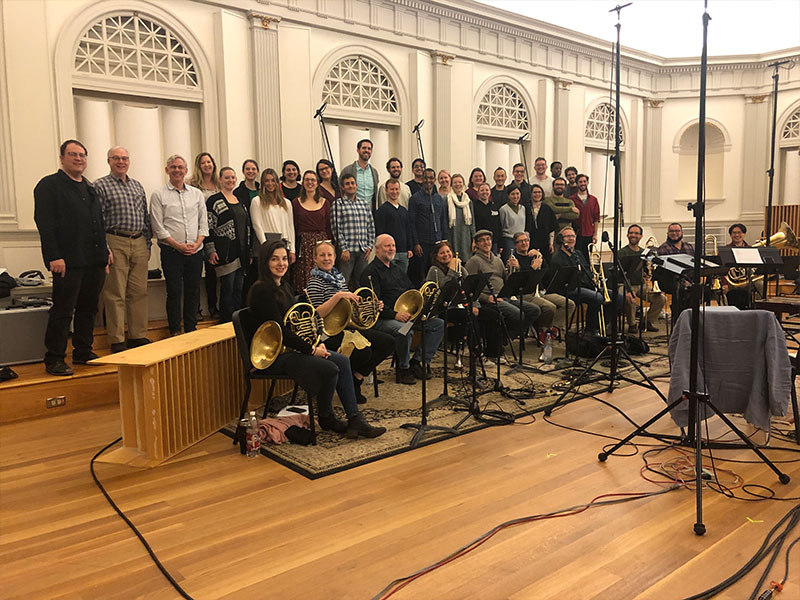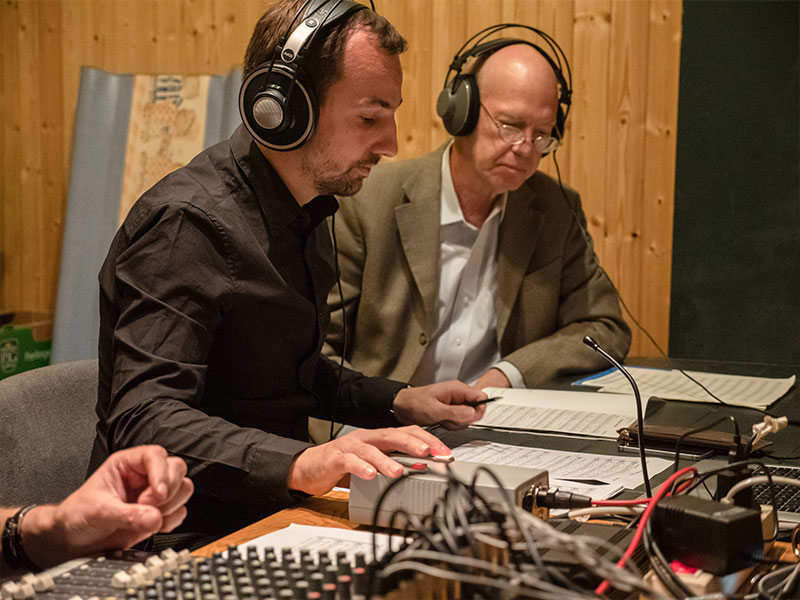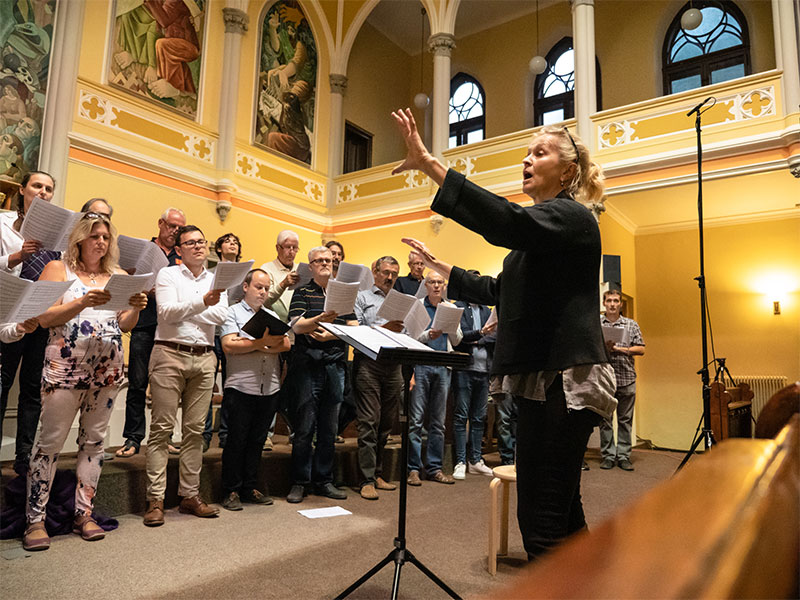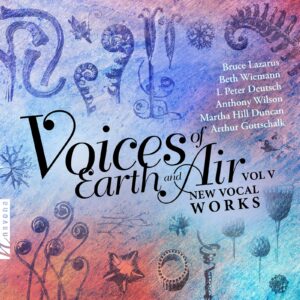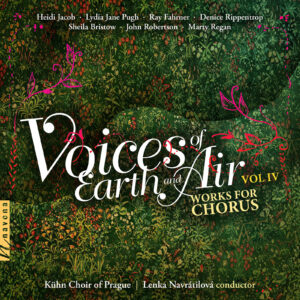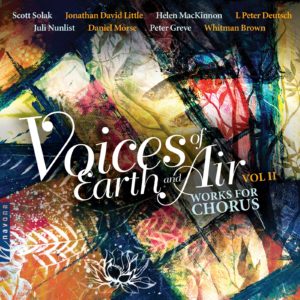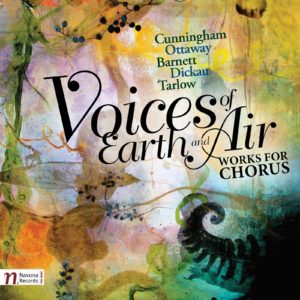
Share Album:
Voices of Earth and Air Vol III
Kong-yu Wong composer
Scott Anthony Shell composer
William Copper composer
Deborah Anderson composer
Theresa Koon composer
Hans Bakker composer
Santiago Kodela composer
Christopher J. Hoh composer
Garth Baxter composer
Kühn Choir of Prague | Lenka Navrátilová conductor
Vox Futura | Andrew Shenton conductor
Judging by Navona's VOICES OF EARTH AND AIR VOL III, this century is facing a significant paradigm shift in contemporary composition. The third installment of the trailblazing series again showcases contemporary choral music, and once more, it is mesmerizing – mesmerizingly tonal and aesthetic.
Cantonese-born Kong-Yu Wong introduces the album with Three Lyrics of Lu Fang Weng. The work consists of a prelude and three choral works based on poems by the 12th-century Chinese poet, which are so timeless in nature that they might well have been written yesterday. Ever careful to preserve the clarity of his choral composition, Kong-Yu Wong subtly frames these pieces with a solo piano part. The poetic theme is continued with Gitanjali 1, Scott Anthony Shell's interpretation of spiritual poetry by mystic Bengali poet Rabindranath Tagore. Despite the ethereal nature of the text, the music is accessible, evoking a sense of cosmopolitan sanctity.
William Copper carries on the spiritual subject with his Ave Regina Caelorum, a beautiful example of compositional craftsmanship. Quite a unique take on what could be called a bel canto choral work, it dazzles with impeccable structure and intonation. Deborah Anderson is featured with two sublime compositions. Windows is a work for women's choir, based on a poem by a French priest. Colorado Prayer is scored for mixed choir and based on a text by a traveling minister.
Mother of Exiles, written by Theresa Koon, aims not only to address the complex issue of immigration, but to offer a voice to immigrants who lack one. It is centered around Emma Lazarus’ poem The New Colossus, which is inscribed in the Statue of Liberty. Hans Bakker strikes a philosophical note with Rat (English: "counsel"), based on a life advice-giving poem by little-known German mystic Joseph Anton Schneiderfranken. Even more metaphysical is his second featured work, Ich habe den Menschen gesehen (I have seen Man [in his deepest form]), a reflective poem by the late 19th-century wordsmith Christian Morgenstern.
Santiago Kodela's The Gulag Within may well be the most modernist piece on this album. With inexorable clarity, it illustrates the various facets of human dilemma, showcasing various limits that are often subconsciously self-imposed. Music at the Heart of Creation by Christopher J. Hoh aims to portray the centrality of music to both spiritual worship and to Life itself.
Noted for his ability to set lyrics to music to enhance the poem's intent, Garth Baxter rounds off the album with Still Falls the Rain, a lyrical, powerful piece based on one of Edith Sitwell's best- known poems. It is a plea to God in times of strife, mirroring the trials and tribulations of the Second World War, but also advocating a message of hope.
Listen
Stream/Buy
Choose your platform
"Tonality and atonality coexist in perfect harmony"
"Based on the evidence at hand, choral composition writing and performance has never been healthier and more abundant than it is today"
An Inside Look
Theresa Koon - Mother of Exiles | Hans Bakker
Track Listing & Credits
| # | Title | Composer | Performer | |
|---|---|---|---|---|
| 01 | 3 Lyrics by Lu Fang Weng (Excerpts): Prelude I | Kong-Yu Wong | Vox Futura | Andrew Shenton, conductor; Yoko Hagino, piano; Noel Smith, choir director; Wee Kiat Chia, language coach | 1:34 |
| 02 | 3 Lyrics by Lu Fang Weng (Excerpts): No. 1, Where Is the Mountain? | Kong-Yu Wong | Vox Futura | Andrew Shenton, conductor; Yoko Hagino, piano; Noel Smith, choir director; Wee Kiat Chia, language coach | 3:30 |
| 03 | 3 Lyrics by Lu Fang Weng (Excerpts): No. 2, On a Homecoming Boat | Kong-Yu Wong | Vox Futura | Andrew Shenton, conductor; Yoko Hagino, piano; Noel Smith, choir director; Wee Kiat Chia, language coach | 2:32 |
| 04 | 3 Lyrics by Lu Fang Weng (Excerpts): No. 3, Avoiding Songs & Dances - Postlude | Kong-Yu Wong | Vox Futura | Andrew Shenton, conductor; Yoko Hagino, piano; Noel Smith, choir director; Wee Kiat Chia, language coach | 3:34 |
| 05 | Gitanjali 1 | Scott Anthony Shell | Vox Futura | Andrew Shenton, conductor; Noel Smith, choir director | 5:20 |
| 06 | Ave Regina Caelorum | William Copper | Kühn Choir of Prague | Lenka Navrátilová, conductor | 4:21 |
| 07 | Windows, Op. 6 (Version for Choir & Piano) | Deborah Anderson | Kühn Choir of Prague | Lenka Navrátilová, conductor; Daniela Valtová-Kosinová, piano | 2:21 |
| 08 | Colorado Prayer, Op. 39 | Deborah Anderson | Kühn Choir of Prague | Lenka Navrátilová, conductor; Daniela Valtová-Kosinová, piano | 2:21 |
| 09 | Mother of Exiles | Theresa Koon | Kühn Choir of Prague | Lenka Navrátilová, conductor | 4:10 |
| 10 | Rat (Version for Male Choir) | Hans Bakker | Kühn Choir of Prague | Lenka Navrátilová, conductor | 1:39 |
| 11 | Ich habe den Menschen gesehen | Hans Bakker | Kühn Choir of Prague | Lenka Navrátilová, conductor | 6:14 |
| 12 | Rat (Version for Mixed Choir) | Hans Bakker | Kühn Choir of Prague | Lenka Navrátilová, conductor | 1:44 |
| 13 | The Gulag Within | Santiago Kodela | Kühn Choir of Prague | Lenka Navrátilová, conductor | 4:40 |
| 14 | Music at the Heart of Creation | Christopher J. Hoh | Vox Futura | Andrew Shenton, conductor; Noel Smith, choir director; Dana Oakes, Andrew Sorg, Mary-Lynne Bohn - trumpets; Robert Marlatt, Kate Gascogne, Sarah Sutherland - french horns; Hans Bohn, Alexei Doohovskoy - trombones; Angel Subero, bass trombone; Takatsugu Hagiwara, tuba | 8:36 |
| 15 | Still Falls the Rain | Garth Baxter | Kühn Choir of Prague | Lenka Navrátilová, conductor; Linda Sítková, organ | 9:23 |
THREE LYRICS OF LU FANG WENG
Text by Lu You (1125–1210)
GITANJALI 1
Text by Rabindranath Tagore
AVE REGINA CAELORUM
Text by Anonymous
WINDOWS
Text by Michel Quoist
COLORADO PRAYER
Text by Barney C. Crockett
MOTHER OF EXILES
Text by Emma Lazarus
RAT
Text by Joseph Anton Schneiderfranken (Bô Yin Râ)
ICH HABE DEN MENSCHEN GESEHEN - for mixed choir SATB
Text by Christian Morgenstern
RAT - Counsel for mixed choir SATB
Text by Joseph Anton Schneiderfranken (Bô Yin Râ)
THE GULAG WITHIN
Text by Santiago Kodela
MUSIC AT THE HEART OF CREATION
Text by Barry E.B. Swain & Christopher J. Hoh
STILL FALLS THE RAIN
Text by Edith Sitwell
THREE LYRICS OF LU FANG WENG, GITANJALI 1
Recorded September 21-22, 2019 at Futura Productions in Roslindale MA
Session Producers John Weston & Noel Smith
Session Engineer John Weston
Assistant Engineer Jacob Steingart
AVE REGINA CAELORUM
Recorded September 16, 2019 in The Chapel at Korunní in Prague, Czech Republic
Session Producer Jan Košuli
Session Engineer Aleš Dvořák
Assistatnt Engineer Jana Jelínková
WINDOWS, COLORADO PRAYER
Recorded September 17, 2019 at The Chapel at Korunní in Prague, Czech Republic
Session Engineer, Producer Jan Košulič
Assistant Engineer Jana Jelínková
RAT - COUNSEL FOR MALE CHOIR, ICH HABE DEN MENSCHEN GESEHEN, RAT - COUNSEL FOR MIXED CHOIR, MOTHER OF EXILES
Recorded December 13, 2019 at the Czech TV Music Studio in Prague, Czech Republic
Session Producer Jan Košulič
Session Engineer Jan Košulič
Assistant Engineer Roman Sklenář
THE GULAG WITHIN, STILL FALLS THE RAIN
Recorded February 5, 2020 in The Chapel at Korunní in Prague, Czech Republic
Session Producer Jan Košulič
Session Engineer Aleš Dvořák
MUSIC AT THE HEART OF CREATION
Recorded November 9, 2019 at Futura Productions in Roslindale MA
Session Producers John Weston & Noel Smith
Session Engineer John Weston
Assistant Engineer Jacob Steingart
Executive Producer Bob Lord
Executive A&R Sam Renshaw
A&R Director Brandon MacNeil
A&R Quinton Blue, Danielle Lewis, Morgan Santos, Jacob Smith, Chris Robinson
VP, Audio Production Jeff LeRoy
Audio Director, Editing & Mixing (tracks 1-5, 13-15) Lucas Paquette
Recording Sessions Director Levi Brown
International Recording Sessions Manager, Editing & Mixing (tracks 6-13, 15) Jan Košulič
Mastering Shaun Michaud
VP, Design & Marketing Brett Picknell
Art Director Ryan Harrison
Design Edward A. Fleming
Publicity Patrick Niland, Sara Warner
Artist Information
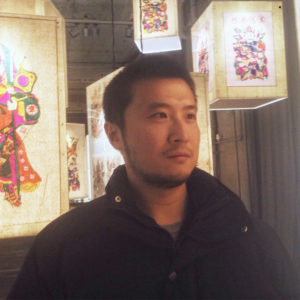
Kong-Yu Wong
Kong-Yu Wong was born in Canton and he then became a HongKonger. He studies music at different institutes in China and Hong Kong, and was awarded a PhD from the University of York in England. Principal mentors of his include composers Gao Weijie and Nicola LeFanu. Wong’s recent works include a number of vocal compositions in varied forces and different languages. His piano music for young people is especially welcomed by pianists and audiences alike.

Scott Anthony Shell
Scott Anthony Shell was born in Omaha Nebraska USA but grew up near Chicago IL. He earned a degree in music composition at DePaul University while studying voice and singing in choirs. Instead of pursuing academic degrees, he immersed himself in the Chicago indie rock scene and created a record label and rock band (singer / songwriter / guitarist) called Cats & Jammers that released several recordings and toured all over the USA. S.A. is fluent in Spanish and has spent quite a bit of time in South America. Currently he resides in in Patagonia AZ.
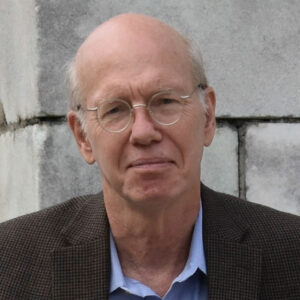
William Copper
William Copper is an American composer of contemporary classical music, a theorist, and the authority on Intonalism, the science of structuring music according to intonation. His music is praised for its beauty, structural integrity, and innovative originality. He has been a life-long supporter and volunteer as Board Member and officer for music and cultural organizations.

Deborah J. Anderson
Deborah J. Anderson grew up in Tacoma WA and began composing at age 6. As a teenager she studied piano and voice. In college she majored in languages and she later served in the Peace Corps in Tunisia, where she taught English, studied Arabic music, and learned to play the ‘oud and sing in Arabic. After earning a master's degree in French (University of Washington, Seattle), she taught at the college level for a number of years. From 2000 to 2011 she sang in the Pacific Lutheran University Choral Union. She enjoys her four adult children, the arts, travel, and gourmet cooking.

Theresa Koon
Theresa Koon composes music primarily for voice, emerging from an international vocal performance career including several years at the Thüringerlandestheater in Germany. Operas, song cycles, and choral music make up the center of her work, generally inspired by explorations into social issues or current events. Koon’s chamber opera PROMISE, which considers the social significance behind artistic “promise,” was conceived as a vehicle for regional and conservatory opera productions and has been performed across the United States.
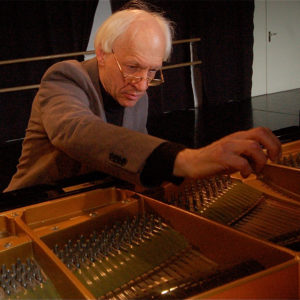
Hans Bakker
After he finished his studies piano, church organ, and choral conducting at the Dutch Institute for Church Music in Utrecht, Hans Bakker (b. 1945) worked as a teacher at two music schools in the Netherlands. He also conducted two choirs and was active in the improvisational music scene. His career in music was followed by the study of Sanskrit. After obtaining his master's degree at the University of Amsterdam, he returned to music, becoming completely occupied by teaching at Globe Center for Art and Culture in the city of Hilversum.
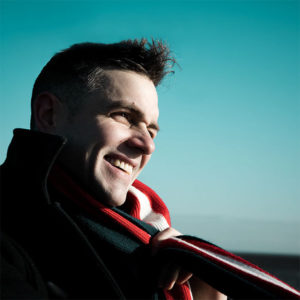
Santiago Kodela
Santiago Kodela is an award-winning Classical Guitarist & Composer working in the areas of concert, solo instrument, chamber, and choral music. His works explore various aspects of sound and harmony, adventuring intensely into the areas of iso-rhythms, metric modulation, and chord harmonization. In 2022 the album PINNACLE VOL. 2 was awarded the 2nd Prize Silver Medal by North-American Global Music Awards in the classical category. Furthermore, his piece Delicate Soliloquies was shortlisted as a finalist in the 2nd Composition Competition by the Dutch Guitar Foundation by a jury integrated by Steve Goss, JacobTV, and Nikita Koshkin.
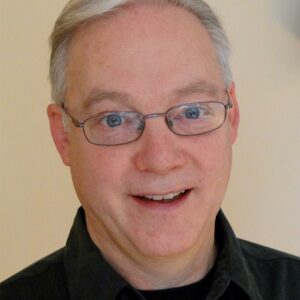
Christopher J. Hoh
“Full of charm and shapely allure” (Opera News) and “a tapestry of immense grace” (Textura) are some of the praises Christopher J. Hoh has received for his music. He grew up in Reading PA and was influenced as a young singer and accompanist by great works under conductors in Pennsylvania, New York, and Washington. He has been in Alice Parker’s composer seminar as well as workshops with Jean Berger, Daniel Moe, Robert Page, and Craig Jessop.
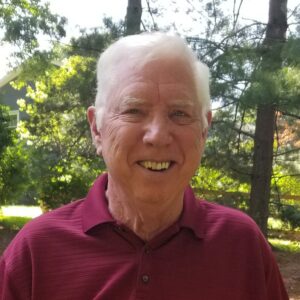
Garth Baxter
Composer Garth Baxter is noted for his modern traditionalist style of writing. He combines the traditions of form and clear melodic writing with contemporary approaches to harmony and other elements. He is recognized as one of the preeminent composers of art songs and has been described as an unabashed lyrical, tonal composer.

Vox Futura
Vox Futura is New England's premier recording choir for composers, recording artists, film, television, and video games. Past projects have included work with internationally distributed classical production house PARMA Recordings, video game companies Nintendo and Bandai Namco, legendary German power metal band Blind Guardian, and platinum selling world music artist Sami Yusef.

Kühn Choir of Prague
The Kühn Choir of Prague is one of the largest Czech choirs and has been part of the musical world for over 60 years. It devotes itself to the choral repertoire of all periods, and its activities include significant performances of contemporary music, performances of large vocal-instrumental works in collaboration with leading Czech orchestras and, last but not least, projects for the performance and recording of film music.

Lenka Navrátilová
Lenka Navrátilová studied piano and harpsichord at the Teplice Conservatory and choral conducting (sacred music) under the guidance of Jiří Kolář and Marek Štryncl at the Faculty of Education of Charles University in Prague. She is second chorus master of the Kühn Choir of Prague, professor of opera coaching at the Prague Conservatory, and répétiteur of the Prague Philharmonic Choir. As the assistant to the chorus master of the Prague Philharmonic Choir, she has participated in its appearances in Doha, Berlin, and at the Sankt Gallen opera festival.
